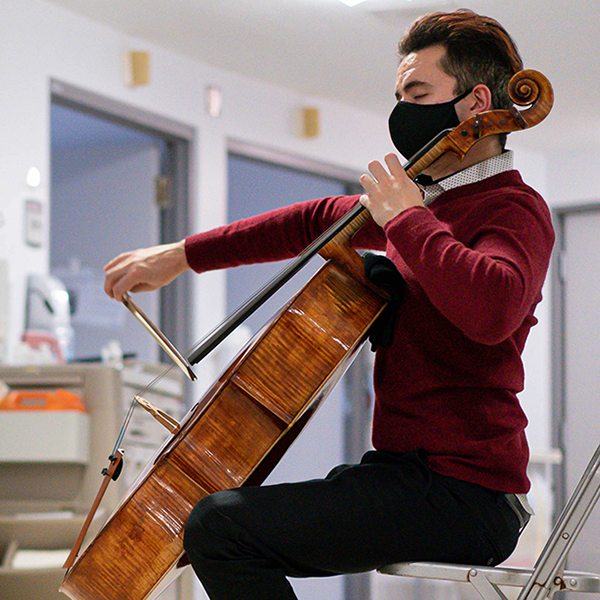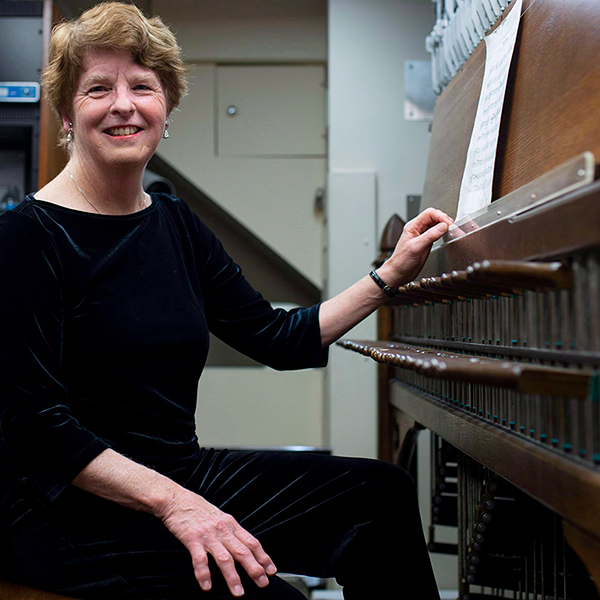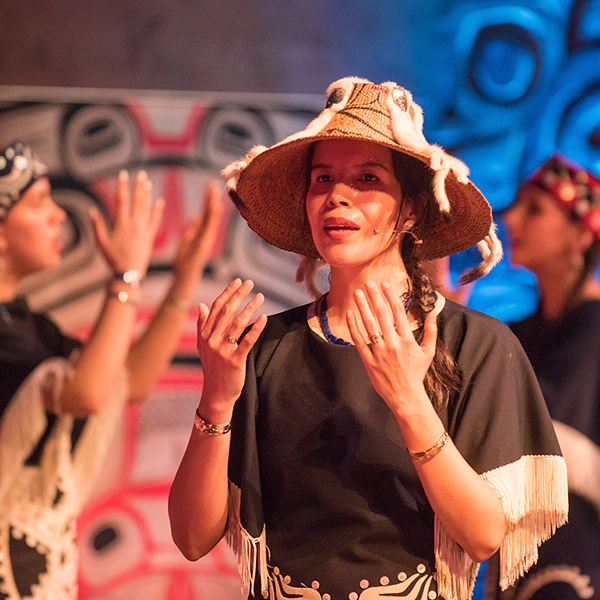It’s been quite the year for talented young soprano Élisabeth St-Gelais, BMus’21.
In March, she won the Schulich School of Music’s annual competition for the $25,000 Wirth Vocal Prize. Then, she won the grand prize in the 19-to-30-year-old category of the Canadian Music Competition. This summer, she took on the role of Rosalinde in a Berlin Opera Company production of Johann Strauss’s Die Fledermaus. And just recently, the Schulich School master’s student was one of five McGillians named to the CBC Music 30 Under 30 list of emerging classical musicians.
“It was a delicious surprise,” she says of the most recent honour.
Her melodic voice has been attracting a growing number of accolades. It all began back in her native Saguenay-Lac-Saint-Jean, when a young St-Gelais was encouraged to sing by her mother.
“My mother registered me in a singing class where we practiced classical singing. I have done it all my life since I was seven years old. From the beginning, it was classical singing. My interest in classical music began like that.”
Coming from a primarily francophone background, St-Gelais began her undergraduate studies at McGill with a degree of apprehension. Apart from the language challenges, she was also a little nervous about moving to the big city.
Soon enough, “Montreal became home for me,” she says. “[The] music life in a vibrant city like Montreal is so fun.”
A lot of that fun was experienced at the Schulich School itself. While she spent her days diligently working with her voice coaches and studying opera, musical theory and languages – all the things an ambitious opera performer needs to do – she also became a big jazz fan at McGill, befriending students in the jazz program and regularly attending jam sessions and concerts.
St-Gelais credits her teachers and mentors at McGill, especially vocal coach and pianist Louise Pelletier and voice instructor Aline Kutan, for making her a better singer.
“I’m working with them; they are my team. I trust them completely. They take care of my voice. My voice is my job; it’s my diamond. It’s my career. So, it’s imperative that when people work with my voice, I can trust them fully and have complete confidence in their [ability]. These people have my back, and I have theirs.”
While her experiences at McGill have helped her to determine her path as a performer, her roots and her heritage also play important roles in her approach to her art.
When she sings, St-Gelais takes her inspiration from Saguenay and its surroundings; its fjord, the forest, the water, the valleys, the cliffs… The unique nature of her hometown is an intricate part of her.
“Saguenay isn’t immutable. It’s explosive by its nature; it’s just overwhelming and beautiful. When I sing, I remember how all of the soul of where I’m coming from is touching my heart. It reminds me of where I’m from. It connects me deeply to my youth and my memories. Being from this tiny but extraordinary special place is meaningful. I was raised around such beauty, and my work is just full of it.”
The Innu soprano regards her Indigenous culture as the foundation stone for her art. She has said multiple times that she wants to showcase the incredible talent that is found in her community through her music.
“It’s important for me that my artistry, music, and interpretation represent my deep connection with my culture. So, when I sing, when I am in an interview, when I am talking about the history behind my art, I always bring up that I am Indigenous. It is the most important aspect of my art.”
St-Gelais collaborates with other Indigenous artists and hopes to bring attention to their work. She has performed compositions by Anishinaabekwe composer Barbara Assiginaak, has been accompanied on the piano by Alex Vollant, an Innu pianist, and actively participates in events featuring Indigenous talents.
McGill vocal instructor Aline Kutan, herself an award-winning soprano who has performed on stages around the world, has worked with St-Gelais since 2017 and says the young soprano possesses “a rich and sombre voice with depth and strength, a voice I would liken to the one of Margaret Price or Jessye Norman.
“Not only does Élisabeth conquer the ears with her beautiful voice, but she conquers the hearts with her sincere interpretations, her generous spirit and her desire to share her soul with her audience. This young singer is a natural performer through and through, and one whose name we’ll get to see frequently in the near future.”


